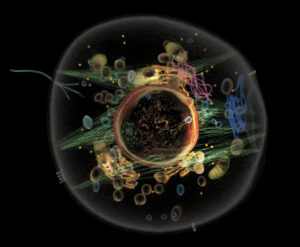COVID-brain clues
Inflammation found in brains of autopsied COVID-19 patients

Investigators at Stanford Medicine and Saarland University in Germany report, in a study published in Nature, that autopsied brains of COVID-19 patients displayed extensive inflammation and neurodegeneration, though no sign of the virus that causes the disease.
The findings may help explain why many COVID-19 patients report neurological problems. About a third of those hospitalized for COVID-19 have symptoms of fuzzy thinking, forgetfulness, difficulty concentrating and depression, said Tony Wyss-Coray, PhD, professor of neurology and neurological sciences at Stanford and a senior author of the paper.
The researchers obtained brain tissue from eight people who died of the disease. Brain samples from 14 people who died of other causes were used as controls.
Researchers logged the activation levels of thousands of genes in each of 65,309 individual cells taken from brain-tissue samples from both groups of people.
In all major cell types in the COVID-19 patients’ brains, activation levels of hundreds of genes — many associated with inflammatory processes — were higher compared with levels in the brains of people in the control group.
There also were signs of distress in neurons in the cerebral cortex, the brain region crucial to decision-making, memory and mathematical reasoning.
“Our findings may help explain the brain fog, fatigue, and other neurological and psychiatric symptoms of long COVID,” said Wyss-Coray, who is the D. H. Chen Professor II.
Read full story here.

